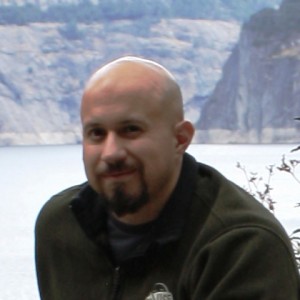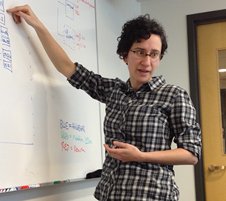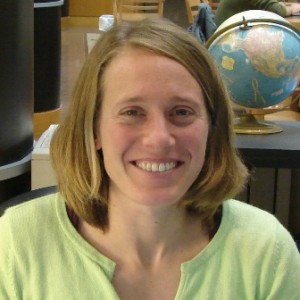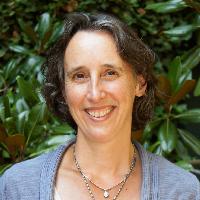Invitation to Apply for CUL Fellowship (formerly Digital Scholarship Fellowship)
We are pleased to invite applications for the CUL Fellowship. This year’s program builds on the Digital Scholarship Fellowship, which was hosted by the DSPS unit since 2012, by expanding it to all library programs. It aims to provide opportunities for CUL staff to expand their skills and experiences in developing, delivering, and assessing services and empower staff to explore gaps in their areas of expertise” and “promoting flexible staffing among the units.
The application deadline is April 6, 2018 for fellowship terms starting during August-October 2018 time-frame.
CUL Fellowship Ideas
Here are some examples of fellowship projects to consider (proposals on other topics are welcome, these are just examples):
- Work with Assessment and Communication staff to conceptualize and plan a student-centered orientation program to enhance the student experience. Assessment results and communication principles will guide your work on re-envisioning this CUL-wide program and you will be able to rely on the Reference and Outreach Committee for additional guidance. Host: Assessment and Communication
- Build on the Repository Executive Inventory Working Group’s work (see https://confluence.cornell.edu/x/czB0Ew) by creating for a method to visualize this data. CUL staff often ask for a way to understand and rationalize our repository environment; the inventory has a lot of information in it, but it is difficult to see and compare offerings in the spreadsheet alone. This opportunity could include scoping, design and/or actual building of the visualization. Host: Digital Scholarship and Preservation Services
- Collaborate with the Digital Scholarship and Preservation Services staff to design and conduct a comprehensive survey of CUL digital assets – characterizing them in terms of origin (born-digital/digital analog) aggregate size, content type, security class (sensitive information or not/rights and/or rights clearance information), and stakeholder requirements for access, discovery, etc. The intent would be to triage these towards various preservation solutions as needed based on the significant properties of the materials involved, surface gaps in our fabric of repositories, and support any appropriate recommendations. Host: Digital Scholarship and Preservation Services
- Metadata facilitates resource discovery across the library as well as many other services supported at CUL. To empower staff to gain further expertise in metadata practice, Library Technical Services is offering CUL colleagues the opportunity to apply for a fellowship in metadata design, management or operations for MARC and/or non-MARC metadata. Examples of potential projects include: Performing batch processing of MARC metadata with existing tooling (e.g. LSTools); Clean and enhance existing Shared Shelf metadata to adhere to application profile and enhance user experience through use of tools (e.g.: OpenRefine) or scripting languages; Model metadata for existing repository or digital collection challenge experienced at your home unit; Review data in external environments (e.g.: Wikipedia) and define reuse cases for enhancing discovery locally. Host: Library Technical Services
- Instruction and instructional materials, such as workshops for colleagues or patrons, LibGuides, online tutorials, and more, are critical to enabling success for scholars at all levels, as well as to providing opportunities for staff development. Olin/Uris Research and Learning Services staff invite those with technical expertise in a variety of areas to apply for a fellowship to work with RLS instructional specialists to develop instructional capacity and materials in a variety of areas, particularly those that support various aspects of digital scholarship, productivity, and information management. Possible topics of focus for the development of workshops and/or instructional materials include, but are not limited to: Generating OCR; Managing image files; Using Excel for managing non-numerical information; Creating a basic Access database. Host: Olin/Uris Research and Learning Services
- Assess the needs of CUL selectors, Library administration, and other stakeholders in CUL collection development and management for collections metrics and analytics. Collections data analysis can help to improve the quality of CUL’s collection and the alignment of collecting activity with the needs and strategic directions of the University; it can identify cost savings and inform decisions about the allocation of library resources. This project would entail determining who in the Library needs collections data to answer which questions and identifying potential sources of relevant cost, usage, and demographic data to address high-priority needs. The project would also produce recommendations for the useful analysis of collections data to support routine collection development decisions, periodic reports, internal and inter-institutional collaborations, special projects, etc. Host: Scholarly Resources
These are just some examples to illustrate the nature of fellowship projects. Other ideas related to any of the CUL programs and goals are welcome.
For More Information About the Program:
- Interested CUL staff members are encouraged to discuss the fellowship position with their supervisors first.
- If you have questions regarding the HR arrangements and funding please contact Lyndsi Prignon at <lra8@cornell.edu>.
- Issues related to the program areas, potential projects, and the scope of the fellowship should be addressed to Oya Rieger <rieger@cornell.edu>.
- Oya Rieger and Lyndsi Prignon will be glad to talk with interested staff and their supervisors about logistical details such as making back-up arrangements and ways to accommodate the candidates’ existing responsibilities and goals.
Application Information:
- We will have 2 positions open to CUL staff with 6-month, part-time (0.25 FTE) terms.
- Although there are no prerequisite skills required, the candidates need to be familiar with the recent trends and practices related to the program of interest.
- To apply, send a copy of your CV to libhr@cornell.edu with a cover letter describing the program areas of interest and expectations from the fellowship.
- The applications will be reviewed by a small committee with input from the candidate’s supervisor.
- The application deadline is April 6, 2018 for fellowship terms starting during August-October time-frame.
Digital Scholarship Fellows, 2012-2017
During the last six years, DSPS has been very fortunate to host several excellent fellows, all very motivated, creative, and resourceful. We are grateful for their contributions and hope that they found the experience useful and gratifying. They are available to talk with interested parties about their fellowship experiences.
Here is a brief description of their fellowship projects and their titles and affiliations during their fellowship:
Jim DelRosso, Hospitality, Labor, and Management Library
 Jim’s fellowship focused on digital repositories. His primary goal was to work with DSPS and stakeholders around CUL to craft a digital repository policy that addresses questions of software, workflow, collection development, and sustainability, while fulfilling the need for both straightforward access to and robust preservation of the items stored in CUL’s digital repositories. As a component of his fellowship, he contributed to the efforts in creating an agenda for the newly established Repository Executive Group and became the first chair. Jim’s DSPS fellowship was for one year at 0.25 FTE.
Jim’s fellowship focused on digital repositories. His primary goal was to work with DSPS and stakeholders around CUL to craft a digital repository policy that addresses questions of software, workflow, collection development, and sustainability, while fulfilling the need for both straightforward access to and robust preservation of the items stored in CUL’s digital repositories. As a component of his fellowship, he contributed to the efforts in creating an agenda for the newly established Repository Executive Group and became the first chair. Jim’s DSPS fellowship was for one year at 0.25 FTE.
Dianne Dietrich, Physical Sciences Library, EMPSL
 Dianne joined the team of our NEH-funded project on Preservation and Access for Digital Art Objects as the lead Digital Forensic Analyst. This project represented a collection-wide investigation of preservation and emulation strategies for complex born-digital media. Dianne led the project’s technical team and helped develop preservation workflows that would be a baseline for CUL digital forensics services in the years to come. As a part of her fellowship, she has been representing the project at national forums and conferences. Dianne’s fellowship was for two years at 0.5 FTE and continued as CUL’s digital forensics specialist at 0.20 FTE.
Dianne joined the team of our NEH-funded project on Preservation and Access for Digital Art Objects as the lead Digital Forensic Analyst. This project represented a collection-wide investigation of preservation and emulation strategies for complex born-digital media. Dianne led the project’s technical team and helped develop preservation workflows that would be a baseline for CUL digital forensics services in the years to come. As a part of her fellowship, she has been representing the project at national forums and conferences. Dianne’s fellowship was for two years at 0.5 FTE and continued as CUL’s digital forensics specialist at 0.20 FTE.
Erin Eldermire, Research and Assessment Unit
 Erin’s goals for the DSPS fellowship were to contribute to the development of the library website; to explore assessment-related issues for CUL’s digital collections; and to learn from the members of the DSPS Unit towards her future career as a librarian. In her DSPS Press blog, she shared her thoughts on how the Library can enable users to employ a simple search box such as Google, while still allowing them to dive into our vast collection. Erin’s fellowship was for six months at 10 hours/week.
Erin’s goals for the DSPS fellowship were to contribute to the development of the library website; to explore assessment-related issues for CUL’s digital collections; and to learn from the members of the DSPS Unit towards her future career as a librarian. In her DSPS Press blog, she shared her thoughts on how the Library can enable users to employ a simple search box such as Google, while still allowing them to dive into our vast collection. Erin’s fellowship was for six months at 10 hours/week.
Steven Folsom, Library Technical Services
 Steven’s primary goal was to identify and develop strategies for improving discovery and access of CUL’s content archived in HathiTrust, including outreach and community building (e.g., communication with HathiTrust and data aggregators about interoperability opportunities). He also contributed to the CUL’s efforts to migrate the DLXS-based image databases to other systems such as HathiTrust, Hydra, and SharedShelf. Included in his goals was engaging in the CUL efforts to assess Omeka/Spotlight/Drupal as platforms for creating web-based exhibits and rich-media collections. Steve’s DSPS fellowship was for one year at 0.25 FTE.
Steven’s primary goal was to identify and develop strategies for improving discovery and access of CUL’s content archived in HathiTrust, including outreach and community building (e.g., communication with HathiTrust and data aggregators about interoperability opportunities). He also contributed to the CUL’s efforts to migrate the DLXS-based image databases to other systems such as HathiTrust, Hydra, and SharedShelf. Included in his goals was engaging in the CUL efforts to assess Omeka/Spotlight/Drupal as platforms for creating web-based exhibits and rich-media collections. Steve’s DSPS fellowship was for one year at 0.25 FTE.
Noah Hamm, Mann Library
 During his fellowship, Noah was interested in exploring how GIS and visualization techniques and tools are being used in supporting humanities research and teaching, in collaboration with the library staff interested in digital humanities programs. He also was involved in a campus-wide group to survey AV preservation needs across Cornell by conducting stakeholder interviews and gathering data about the condition and value of digital content. His fellowship term was 6-month, 12 hours/week.
During his fellowship, Noah was interested in exploring how GIS and visualization techniques and tools are being used in supporting humanities research and teaching, in collaboration with the library staff interested in digital humanities programs. He also was involved in a campus-wide group to survey AV preservation needs across Cornell by conducting stakeholder interviews and gathering data about the condition and value of digital content. His fellowship term was 6-month, 12 hours/week.
Hannah Marshall, (formerly) Library Technical Services
 Hannah Marshall has assumed a 0.25FTE, 5-month term to coordinate the Digital Consulting and Production Services (DCAPS) during the DSPS reorg transition stage. Currently she is coordinating the DCAPS operation and works closely with the DCAPS team members to facilitate communication. She has been instrumental in coordinating the outreach process for the Arts and Sciences Grants Program. She also networks with stakeholders such as library subject specialists to make sure that there is sufficient user input to support the development efforts.
Hannah Marshall has assumed a 0.25FTE, 5-month term to coordinate the Digital Consulting and Production Services (DCAPS) during the DSPS reorg transition stage. Currently she is coordinating the DCAPS operation and works closely with the DCAPS team members to facilitate communication. She has been instrumental in coordinating the outreach process for the Arts and Sciences Grants Program. She also networks with stakeholders such as library subject specialists to make sure that there is sufficient user input to support the development efforts.
Gail Steinhart, (formerly) Mann Library
 As the first DSPS fellow, over the course of her one year fellowship with DSPS (2012-2013. 0.5FTE), she chaired a newly formed group to address issues related to the management of Cornell’s electronic theses and dissertations (ETDs), including facilitating discussions with the Graduate School, which led to a revised set of embargo options that will be implemented when upgrades are made to the online submission tool used by graduate students to submit their theses ETDs. She reviewed and reported on the results of a pilot project examining the use of Johns Hopkins’ Data Conservancy to host data sets associated with papers uploaded to arXiv, led the production of a white paper examining current approaches to digital repositories within CUL, and contributed to other DSPS efforts such as educating librarians on current issues in scholarly communication (with particular emphasis on research data management and sharing). Finally, she led the development of a collaborative grant proposal to the Institute for Museum and Library Services with the University of Wisconsin-Madison, Columbia University and CalPoly, to develop and share a set of best practices for collecting, documenting and disseminating the research data of faculty nearing retirement.
As the first DSPS fellow, over the course of her one year fellowship with DSPS (2012-2013. 0.5FTE), she chaired a newly formed group to address issues related to the management of Cornell’s electronic theses and dissertations (ETDs), including facilitating discussions with the Graduate School, which led to a revised set of embargo options that will be implemented when upgrades are made to the online submission tool used by graduate students to submit their theses ETDs. She reviewed and reported on the results of a pilot project examining the use of Johns Hopkins’ Data Conservancy to host data sets associated with papers uploaded to arXiv, led the production of a white paper examining current approaches to digital repositories within CUL, and contributed to other DSPS efforts such as educating librarians on current issues in scholarly communication (with particular emphasis on research data management and sharing). Finally, she led the development of a collaborative grant proposal to the Institute for Museum and Library Services with the University of Wisconsin-Madison, Columbia University and CalPoly, to develop and share a set of best practices for collecting, documenting and disseminating the research data of faculty nearing retirement.
Jeff Piestrak, Mann Library
 Co-sponsored by the eXtension Foundation, Jeff’s one year .2 FTE “Land Grant Informatics” fellowship identified ways institutions like Cornell might more seamlessly and effectively link people, technology and information in support of our Land Grant mission and the communities we serve, on and off campus. Drawing on his own background and a diverse global network of researchers, educators and practitioners (including Cooperative Extension), Jeff focused on how an informatics approach might specifically support healthy, resilient food systems. His final report is available on eCommons. A complete record of his work including a blog series can be found on the eXtension website here: https://www.extension.org/jeff-piestrak/. Jeff is now applying and expanding on research from his fellowship through graduate studies in Community and Economic Development at SUNY Empire State College, with a concentration in Social and Community Informatics.
Co-sponsored by the eXtension Foundation, Jeff’s one year .2 FTE “Land Grant Informatics” fellowship identified ways institutions like Cornell might more seamlessly and effectively link people, technology and information in support of our Land Grant mission and the communities we serve, on and off campus. Drawing on his own background and a diverse global network of researchers, educators and practitioners (including Cooperative Extension), Jeff focused on how an informatics approach might specifically support healthy, resilient food systems. His final report is available on eCommons. A complete record of his work including a blog series can be found on the eXtension website here: https://www.extension.org/jeff-piestrak/. Jeff is now applying and expanding on research from his fellowship through graduate studies in Community and Economic Development at SUNY Empire State College, with a concentration in Social and Community Informatics.
Marsha Taichman, Fine Arts Library
 Marsha’s fellowship addressed the lifecycle and workflows of digital projects. The Digital Consulting & Production Services (DCAPS) unit of DSPS knows how to create digital image collections, but we have a lesser understanding of how digital collections are being used based on quantitative data (such as statistics on site use from Google Analytics and Piwik) and qualitative data (such as focus groups and personal interviews). In Marsha’s DSPS fellowship, she assessed how digital collections were being used with these data points as metrics. She also examined how we promote our digital collections, and created a checklist for how we can systematically spread the word about new collections when they are launched and thereafter. The checklist can be found here, as an appendix to the project report: http://hdl.handle.net/1813/49677. Marsha’s DSPS fellowship was 8 hours a week for 6 months.
Marsha’s fellowship addressed the lifecycle and workflows of digital projects. The Digital Consulting & Production Services (DCAPS) unit of DSPS knows how to create digital image collections, but we have a lesser understanding of how digital collections are being used based on quantitative data (such as statistics on site use from Google Analytics and Piwik) and qualitative data (such as focus groups and personal interviews). In Marsha’s DSPS fellowship, she assessed how digital collections were being used with these data points as metrics. She also examined how we promote our digital collections, and created a checklist for how we can systematically spread the word about new collections when they are launched and thereafter. The checklist can be found here, as an appendix to the project report: http://hdl.handle.net/1813/49677. Marsha’s DSPS fellowship was 8 hours a week for 6 months.
